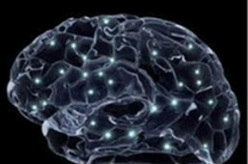
A clean break or stay friends?
If a relationship breakup is painful, is it better to have a clean break and no contact with an ex, or to try to stay friends? This is a question I am often asked. Intuitively I felt that it would be less painful and speed up the recovery process if all contact was ceased (at least until the feelings for the ex had receded). It seemed to me that maintaining contact would keep alive the hope that the ex may yet change their mind and is still a possible partner. This would make it harder to get over the break up and delay the process of grieving and moving on.
Up until now, I had no scientific basis for this idea. However, recently I came across what the neuroscientists have to say about love attachments, and how they are formed and broken within the brain.
Love and Neuroscience
Psychiatrist Dr Norman Doidge, in his book The brain that changes itself, describes how the connections in the brain are "plastic" and changeable rather than set. Doidge says that when you lose a loved one, you need to cull and reorganize these connections so that new connections and a new love can be formed. He suggests that falling out of love with a past love requires unlearning the pattern of attraction to that love. Old attachment networks need to be broken so new bonds can be formed.
If a relationship breakup is painful, is it better to have a clean break and no contact with an ex, or to try to stay friends? This is a question I am often asked. Intuitively I felt that it would be less painful and speed up the recovery process if all contact was ceased (at least until the feelings for the ex had receded). It seemed to me that maintaining contact would keep alive the hope that the ex may yet change their mind and is still a possible partner. This would make it harder to get over the break up and delay the process of grieving and moving on.
Up until now, I had no scientific basis for this idea. However, recently I came across what the neuroscientists have to say about love attachments, and how they are formed and broken within the brain.
Love and Neuroscience
Psychiatrist Dr Norman Doidge, in his book The brain that changes itself, describes how the connections in the brain are "plastic" and changeable rather than set. Doidge says that when you lose a loved one, you need to cull and reorganize these connections so that new connections and a new love can be formed. He suggests that falling out of love with a past love requires unlearning the pattern of attraction to that love. Old attachment networks need to be broken so new bonds can be formed.

Use it or lose it
To unlearn the love attachments, Doidge argues that you must first unlearn the idea that the person is in your life and is there for you. This is where the adage about the brain - “Use it or Lose it” comes in. If you stop activating brain pathways of connection and attachment with this person, the circuits will die off to make room for new pathways to be formed.
Stop contact with your ex
So it would make sense that stopping contact with your ex will help with the unlearning of the love circuits in your brain connected to your ex. This may mean “defriending” them on Facebook for an agreed period of time - I suggest you start with three months and then re- evaluate. You must also resist any urges to check up on what they are doing on Facebook or other social network sites.
Just friends in the future?
If you think you would ultimately like to be “just friends” with your ex, discuss this with them before you temporarily “defriend” them. This will avoid them being offended and you can make an agreement to cease contact for a period of time. You can agree to check in every three to six months with a view to resuming a friendship in the future once you feel the love bonds are unlearned.
And then grieve and rewire your brain
Obviously, getting over your ex will involve more than just ceasing contact. You cannot move on and get over the break up unless you also do the painful work of grieving for the loss of the relationship. Doidge suggests that in order for the brain to grieve and let go of a love, it needs to rewire billions of brain connections. This is done by turning on the relevant brain networks by bringing up vivid memories of the loved one, reliving them and then letting the memory go.
To unlearn the love attachments, Doidge argues that you must first unlearn the idea that the person is in your life and is there for you. This is where the adage about the brain - “Use it or Lose it” comes in. If you stop activating brain pathways of connection and attachment with this person, the circuits will die off to make room for new pathways to be formed.
Stop contact with your ex
So it would make sense that stopping contact with your ex will help with the unlearning of the love circuits in your brain connected to your ex. This may mean “defriending” them on Facebook for an agreed period of time - I suggest you start with three months and then re- evaluate. You must also resist any urges to check up on what they are doing on Facebook or other social network sites.
Just friends in the future?
If you think you would ultimately like to be “just friends” with your ex, discuss this with them before you temporarily “defriend” them. This will avoid them being offended and you can make an agreement to cease contact for a period of time. You can agree to check in every three to six months with a view to resuming a friendship in the future once you feel the love bonds are unlearned.
And then grieve and rewire your brain
Obviously, getting over your ex will involve more than just ceasing contact. You cannot move on and get over the break up unless you also do the painful work of grieving for the loss of the relationship. Doidge suggests that in order for the brain to grieve and let go of a love, it needs to rewire billions of brain connections. This is done by turning on the relevant brain networks by bringing up vivid memories of the loved one, reliving them and then letting the memory go.

Remember the good and the bad
When doing this, it is important to recall both positive and negative memories and feelings. So when you are trying to get over someone, rather than just focusing on how your ex let you down and how much better you are without him or her, you also need to recall what you will miss and those really special times you shared. This will hurt.When doing this, it is important to recall both positive and negative memories and feelings. So when you are trying to get over someone, rather than just focusing on how your ex let you down and how much better you are without him or her, you also need to recall what you will miss and those really special times you shared. This will hurt.
Talk and journal
How is this best done? Talking to others about your memories is the most common way to get over someone, although finding an interested listener may be difficult. Also, there may be certain memories you wish to keep private, especially from mutual friends of your ex. You may also risk tiring friends with the finer details of all the ups and downs of your past relationship. One way of dealing with this on your own is to start a private “break up” journal to express whatever feelings you have and recall whatever you can about your time with your ex without any need to sensor what you say. It is important to set aside time for this as well as engage fully with your life outside of these special grieving times.
When doing this, it is important to recall both positive and negative memories and feelings. So when you are trying to get over someone, rather than just focusing on how your ex let you down and how much better you are without him or her, you also need to recall what you will miss and those really special times you shared. This will hurt.When doing this, it is important to recall both positive and negative memories and feelings. So when you are trying to get over someone, rather than just focusing on how your ex let you down and how much better you are without him or her, you also need to recall what you will miss and those really special times you shared. This will hurt.
Talk and journal
How is this best done? Talking to others about your memories is the most common way to get over someone, although finding an interested listener may be difficult. Also, there may be certain memories you wish to keep private, especially from mutual friends of your ex. You may also risk tiring friends with the finer details of all the ups and downs of your past relationship. One way of dealing with this on your own is to start a private “break up” journal to express whatever feelings you have and recall whatever you can about your time with your ex without any need to sensor what you say. It is important to set aside time for this as well as engage fully with your life outside of these special grieving times.

EMDR can help
Another way is to seek help from a therapist to help with getting over the painful feelings of hurt and loss. The fastest and most effective way I have to help clients if they want to speed up this process is a therapy called EMDR (Eye Movement Desensitization Reprocessing). EMDR will allow you to rapidly recall the memories, process them and let the associated emotional pain go.
This therapy was initially developed to treat trauma and has much research to back up its effectiveness in this area. I find it incredibly effective with grief and loss as well as trauma. Compared to more traditional therapies, I see it as a turbo charged form of therapy as I find it works rapidly to help with resolving issues that in the past would have taken much longer.
The pain fades
My clients tell me that the pain of the break up, and any feelings of jealousy when they see their ex with a new partner, feels more distant and no longer upsets them. It is like a movie that was once sharply focused and brightly coloured has now faded into a black and white still and blurry photo. The ex is not forgotten. It is just no longer upsetting to think about him or her.
Perhaps EMDR is so fast because it uses both sides of the brain to help people process painful feelings and memories rather than the usual “talk therapy” which mainly uses the left side of the brain. EMDR also has the advantage that most of the memory reviewing is done inside your head without having to slow down and explain everything to the listener.
You’ll fall in love again
Even though it may be hard to imagine, you can get over a painful break up and fall just as deeply in love again because of the amazing neuroplastic qualities of the brain. You don’t have to look far to see examples of this in action. Just listen to the heart wrenching lyrics of Adeles’ song Someone Like you and then hear her being interviewed about the new love of her life who (in her mind) far exceeds the subject of her song. You too can make this shift so that the pain of a break up will become a dim memory.
Another way is to seek help from a therapist to help with getting over the painful feelings of hurt and loss. The fastest and most effective way I have to help clients if they want to speed up this process is a therapy called EMDR (Eye Movement Desensitization Reprocessing). EMDR will allow you to rapidly recall the memories, process them and let the associated emotional pain go.
This therapy was initially developed to treat trauma and has much research to back up its effectiveness in this area. I find it incredibly effective with grief and loss as well as trauma. Compared to more traditional therapies, I see it as a turbo charged form of therapy as I find it works rapidly to help with resolving issues that in the past would have taken much longer.
The pain fades
My clients tell me that the pain of the break up, and any feelings of jealousy when they see their ex with a new partner, feels more distant and no longer upsets them. It is like a movie that was once sharply focused and brightly coloured has now faded into a black and white still and blurry photo. The ex is not forgotten. It is just no longer upsetting to think about him or her.
Perhaps EMDR is so fast because it uses both sides of the brain to help people process painful feelings and memories rather than the usual “talk therapy” which mainly uses the left side of the brain. EMDR also has the advantage that most of the memory reviewing is done inside your head without having to slow down and explain everything to the listener.
You’ll fall in love again
Even though it may be hard to imagine, you can get over a painful break up and fall just as deeply in love again because of the amazing neuroplastic qualities of the brain. You don’t have to look far to see examples of this in action. Just listen to the heart wrenching lyrics of Adeles’ song Someone Like you and then hear her being interviewed about the new love of her life who (in her mind) far exceeds the subject of her song. You too can make this shift so that the pain of a break up will become a dim memory.
 RSS Feed
RSS Feed